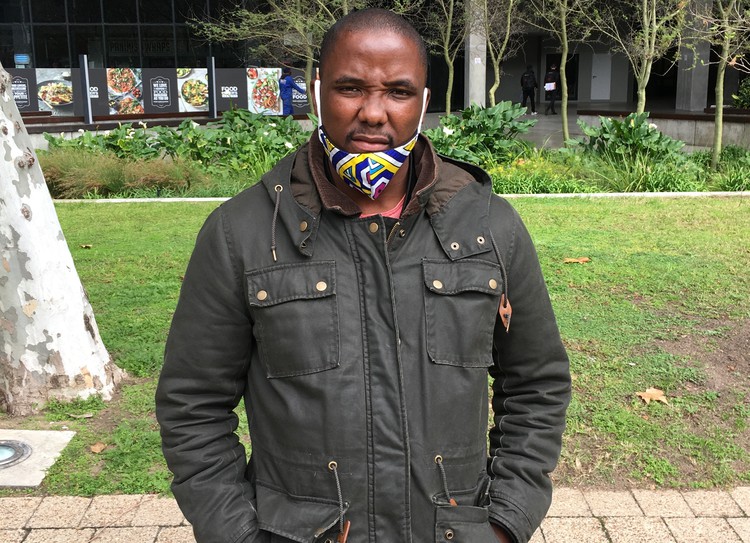No evictions or demolitions without a court order, judges rule
City of Cape Town told to return confiscated materials
Bulelani Qolani, who was evicted from his shack in July. The Western Cape High Court on Tuesday ruled that the City of Cape Town must have a court order to evict someone or demolish a home during the state of national disaster. Archive photo: James Stent
The City of Cape Town’s Anti-Land Invasion Unit (ALIU) will not be allowed to evict people or demolish their structures, whether occupied or unoccupied, without a court order while the country remains in a state of national disaster.
Judges Shehnaz Meer and Rosheni Allie in the Western Cape High Court on Tuesday afternoon granted an interim relief stating that the City must have a court order to evict anyone or demolish a home.
The case was brought by the SA Human Rights Commission following a string of demolitions and evictions by the City of Cape Town in recently-occupied informal settlements. The removal of Bulelani Qolani from his shack by City officers while naked was widely covered in the media. Other respondents listed in the case included the Ministers of Human Settlements, Cooperative Governance and Traditional Affairs, and Police, and SAPS national commissioner.
Judges Meer and Allie also ordered that in cases where a court order is obtained for an eviction or demolition, the City must execute the order in a lawful and respectful manner that “upholds the dignity of the evicted persons”. They said the City is “expressly prohibited from using excessive force” and may not destroy or confiscate material belonging to those evicted.
The court has given the City a week to return “all building material and personal possessions” taken by the ALIU since 1 May and ordered that it pay R2,000 to the parties cited by the Economic Freedom Fighters in its submissions to the court.
The City was further interdicted from “considering, adjudicating and awarding” bids and tenders related to demolition services for the ALIU.
The court also instructed SAPS members present at a court-sanctioned demolition or eviction to ensure that the actions are being lawfully executed and to “protect the dignity of the persons evicted”.
Costs of the application will be shouldered by the City of Cape Town, except for the costs of the hearing of 25 July.
Mayor Dan Plato has said he has instructed the City’s lawyers to appeal the decision. He said that the judgment sets a dangerous precedent for all landowners. “If left unchallenged, the interdict would make it almost impossible for landowners to protect their property from unlawful occupation and to prevent people from establishing homes, albeit unlawfully, on the property of others. The knock-on effect of the large-scale orchestrated land invasions we have seen is simply devastating for Cape Town, its communities, residents in general and the City.”
In October, hearings will be held to determine whether or not the municipality has the authority to execute demolitions or evictions without a court order after the end of the state of national disaster.
UPDATE: This article was updated after publication with Mayor Dan Plato’s statement.
Support independent journalism
Donate using Payfast

© 2020 GroundUp. This article is licensed under a Creative Commons Attribution-NoDerivatives 4.0 International License.
You may republish this article, so long as you credit the authors and GroundUp, and do not change the text. Please include a link back to the original article.

